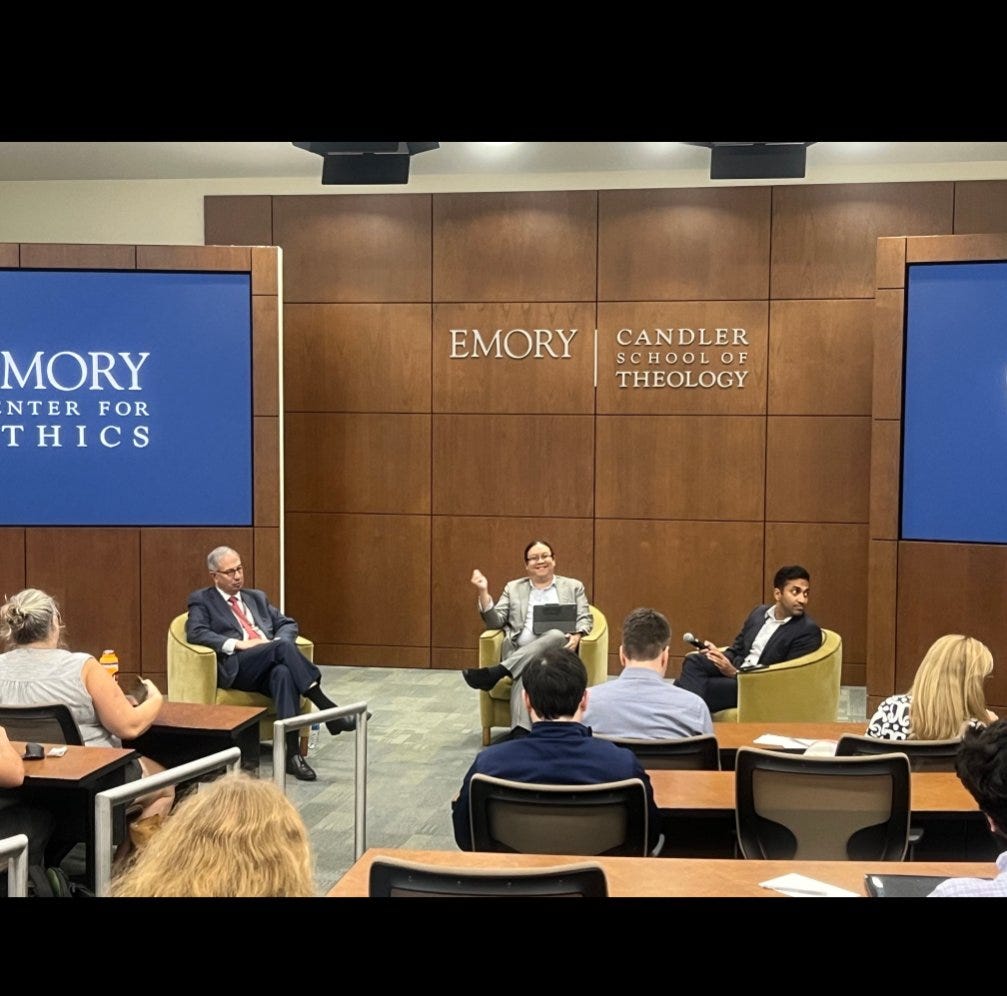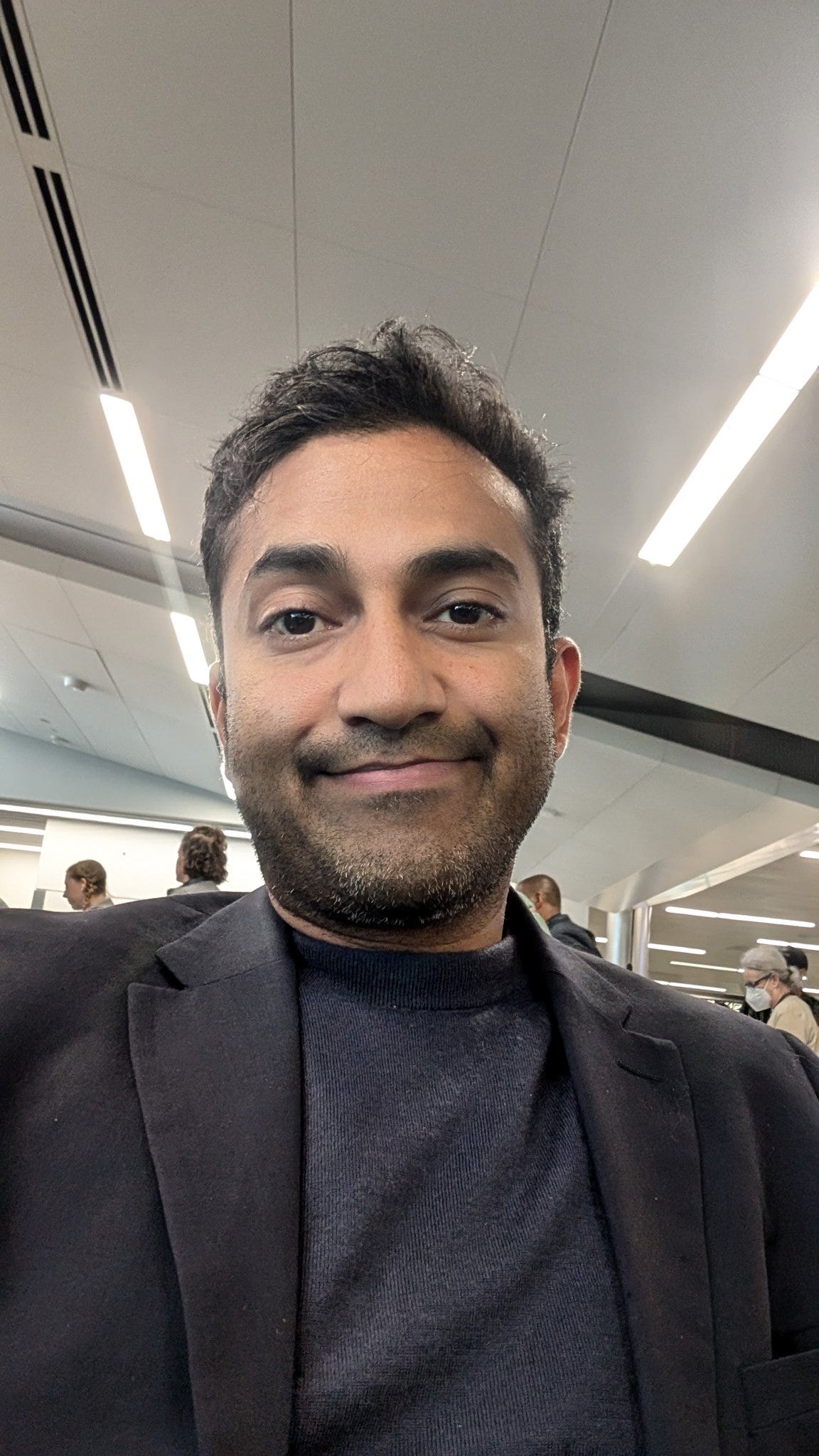Lessons from Emory-- Masking Mistakes
Carlos Del Rio and I discuss
On Monday night, I was asked to discuss COVID-19 policy errors with Dr. Carlos Del Rio, Chair of Medicine at Emory. Here are 6 lessons
Del Rio and I agree that prolonged school closure was a mistake. One point of contention is that Dr. Del Rio thinks that a brief initial closure was not a mistake at the time, given the uncertainty, but, I think it was, given the evidence at the time. Evidence to support my view is that not all countries closed schools. Sweden never closed school for kids <12 years old. This suggests that it was possible to review the evidence and find the risk to kids was minimal. Second, there was pre-pandemic guidance issued by DA Henderson and others that schools should not be closed for respiratory illnesses with less than 1 million expected healthy child fatalities. In other words, COVID-19 would have to be 1000x or more as lethal to children before school closure would be entertained— based on pre-pandemic thinking. In other words, school closure was done out of panic, ignoring evidence from Wuhan, and ignoring pre-pandemic guidance.
Del Rio and I agree that the current CDC and FDA program to vaccinate children and healthy adults who have had covid is misguided. He discussed how his own son (late 30s) asked if he should get a fall booster, and he gave an equivocal response. I would say: hell no. One day in the future, the formulation may have more myocarditis. We both agree that the CDC may be contributing to vaccine hesitancy because they are making the public believe that covid vaccines for kids are as important as polio, for e.g. This is a dangerous and false equivalence.
We disagreed a bit on long COVID. First, I think medicine has a long and disreputable history of ignoring patients who feel unwell and this is lamentable. Second, some people who get very ill from COVID have long term sequellae that are terrible— just as has been the case for influenza in the past. Third, having said these things, for many people, long covid is largely a psychosomatic illness. There is no evidence of perturbed labs and a strong link to stress, depression and anxiety. There is nothing wrong with saying this, and if more people accepted it we might pursue better treatments. SSRIs for e.g. have more pretest utility than anti-virals. Dr. Del Rio seems to think there may be more of a biologic basis, but these differences were not further explored.
Dr. Del Rio thinks public health training must include communication with the public, but I disagree. I think the average public health graduate should be trained in keeping quiet. I think too many scientists with poor critical thinking skills broadcasting their opinion was part of the problem. Many of my colleagues did not understand the safety signal VITT and said irresponsible things. Here is one particularly poor COVID-19 commenter.
VITT is nothing like a DVT from oral contraceptives. VITT is devastating— causes brain herniation and death— while a leg DVT is easily treated. Angela was so wrong that eventually both J&J and AZ shelved the entire adenoviral vector vaccine program. Also the risk of VITT was 1 in 40k not 1 in a million. Public health experts talking about masking kids, or social distancing, and many other aspects of pandemic response were mostly just repeating things they read in the media, rather than independently critically evaluating topics.
COVID-19 harmed poor people more than rich people. And the pandemic response harmed poor people more than rich people. On this Dr. Del Rio and I fully agree.
We need more debates. Kudos to Brian Shields for funding the event, and for Emory Center for Ethics for hosting. This took courage. Why? Well, the vast majority of Americans are bored by COVID and most probably agree with a centrist view (as I hold) or would be persuadable. But, there is a tiny fraction of extreme COVID fanatics— you can recognize them because they still mask their children on airplanes— and they use the bullying nature of cancel culture to stop dialog and debates. Their tactics were successful during the pandemic. Top universities held zero debates, and spineless administrators (which are basically most administrators these days b/c you won’t get the job if you are daring) capitulate to them. But the damn is breaking. MIT had a conference in the spring; Stanford had a conference last week, and Emory had this event. More events will come at major universities. We need these discussions to further our understanding of the pandemic. I encourage anyone reading who can make a dialog happen to reach out. I would be happy to come speak.





I think many of my friends still believe the old dogma, not because they’ve read much about it and are well-informed, but because of anchoring bias. Anchoring bias is a cognitive bias that causes us to rely too much on the first things we learned about a given topic, despite evidence to the contrary. I think it’s why it’s hard to let go of old dietary beliefs, for instance. Those of us old enough to remember, know that we were indoctrinated during the 70s and 80s with nonsense about fat and cholesterol, and many people still believe. Back to Covid: many of my friends have these old habits born of fear, having to do with masks, tests and boosters, and I don’t think they’re ready to let go of them, yet. These people are not the extremists we see on Twitter; they’re just regular people trying to do the right thing.
I don’t understand the continued cognitive dissonance, of individuals and organizations. The hospital I am
employed at is requiring Covid vaccine again this year. But it’s simple to decline with a simple click online for any religious, health or personal reason, explanation not required. So in reality they don’t care if people are getting it or not, but they are “requiring” it anyway. Is this really necessary? Is it a virtue signal? I. Don’t. Get. It.